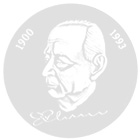Long-standing editorship of the scientific periodical Nature
Sir John Maddox und Nature
The fisrt issue of nature appeared in 1869, with the intention “to place general public the grand results of scientific work and scientific discovery”. The journal has fulfilled this promise ever since: The high esteem in which Nature ist held among scientist and friens of science is legendary; its “tradition of xcelence” remains undisputed.
John Maddox of course did not found the extraordinary reputation of Nature, but he strengthened it. At the lated the editor Maddox became an institution during his second term (1980-95), and, under Maddox’s guidance, Nature solified its top-ranking position among the leading scientific journals of the world.
What are the particular merits which Maddox, and Nature, have to offer?
From the very beginning Nature was on the “forefront of science”. The journal publishes outstanding “letters to Nature” and “review articles” from all fields of science and medicine (including psychology and anthropology). Scientists in more than 100 countries read Nature, and contributions are published from every country where good research is done. Thus, Nature is an essential connecting link for the global scientific community.
Scientists consider Nature as the first address for publication of the results of top research. This places great demands on the judment of the editor. Maddox, a theoretical chemist by trainig, managed to amintain the difficukt v´balance betwenn being too adventurous an too cautious. In critical cases he did not hesitate to intervene personally and to choose unconventional forms of evaluation.
The commentaries in the renowned section “news nad views” are greatly appreciated by many readers. These brief notes comment on outstanding new scientific discoveries and allow the active researcher to maintain an interdisciplinary orientation.
In the news section Nature succesfully tries to connect science with politics, not only within U.K., but also in connection with European and global perspectives. A decade ago, after the European Union had begun to take shape and assume greater importance, John Maddox decided to open an editorial office on th continent. He chose Munich as the site of the new office, now known as “Nature Germany”.
Nature was sometimes accused of overoly favoring molecular bilogy. In my opinion, however, the theoretical chemist John Maddox managed to publish the highlights of the new bilogy in this journal without devoting excessive coverage to the topic. Under Maddox’s Nature are an new, widely respected equilibrium.
The book reviews which regularly appear in Nature are an invaluable source of information for those who want to maintain some contact with science as a whole. Maddox left his mark on this section as well. Book reviews can easily become sources of personal insult nad offence. As far as I am aware, under Maddox’s editorship even the book review section was characterized by airness and personal respect. I consider Maddox’s obituary on Alex Todd in Nature (February 7, 1997) as a masterpiece of the journalistic art of derscribing the personality and the work of a great but difficult scientist with decency and repect.
Pr. Dr. Dr.h.c.mult. Hans Mohr, Universität Freiburg
